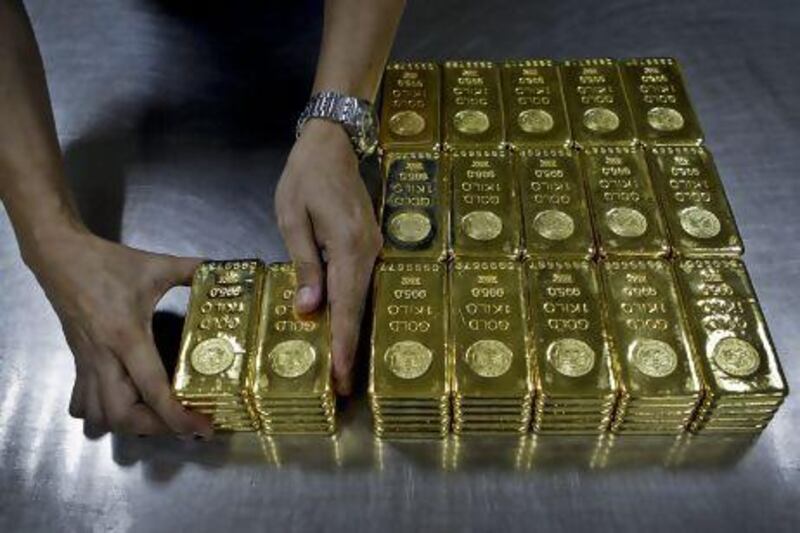Huge quantities of gold flooded into Dubai last month as buyers from across the Arabian Gulf, India, Turkey and China sought to cash in on a crash that wiped more than 20 per cent from the price of the yellow metal.
"I have never seen anything like it," said Jeffrey Rhodes, the global head of precious metals for INTLFC Stone, based in Dubai. "I am certain that when the customs data comes out they will show that April was one of the busiest months ever for gold imports into Dubai.
Official data for last month will not be released until this time next year, but gold dealers, refiners and jewellers are unanimous in their analysis of the current market.
"Our refinery in Sharjah is working 24 hours a day seven days a week," said Tarek El Mdaka, the managing director of Kaloti Gold in Dubai. The amount of gold refined at Kaloti's Sharjah plant was up 295 per cent compared with the same month last year, he added.
"It is running almost the same as in September 2011, the last time we saw a big price drop," Mr El Mdaka said. "Back then it was mainly interest from Asia. Now it is interest from India mainly and the GCC."
Mr El Mdaka added that buyers from Saudi Arabia, Kuwait and Bahrain were among the most prolific customers after India.
The huge interest in the Dubai market is also indicative of a big shift in the global gold trade from derivatives-led to physical gold.
Gerhard Schubert, the head of precious metals trading at Emirates NBD, said that the recent bear market was sparked by investment funds dropping huge quantities of the yellow metal from their portfolios.
These gold exchange traded funds, hedge funds and other derivatives traders were responsible for the big run-up in prices that more than doubled from US$850 per ounce in 2008 to more than $1,900 in September.
Derivatives trade is backed up by so-called large bars - 12.5 kilograms in weight - that are stored in vaults in London, Chicago and Switzerland, among other places. Now that the gold market has turned, investors are looking for smaller quantities that are both affordable to individuals and easier to transport and store.
"Now we are in a bear market and investors are buying physical gold," Mr Schubert said. "And for this reason the market for kilo bars and coins is very active."
The massive increase in demand for smaller bars and coins is also responsible for the flood of new business in the Dubai gold market.
The Dubai Multi Commodities Centre (DMCC) has established a brand called the Dubai Good Delivery Standard that guarantees the provenance and purity of all kilo bars stamped with it.
"The DGD Standard ensures the gold is pure and that it is not conflict gold," said Gautam Sashittal, the chief operating officer of the DMCC. "The Indian market is predominantly looking for kilo bars, so the DGD Standard plays right into that. Dubai is very well positioned to benefit from this new interest in the physical market and in particular the kilo-bar market."





